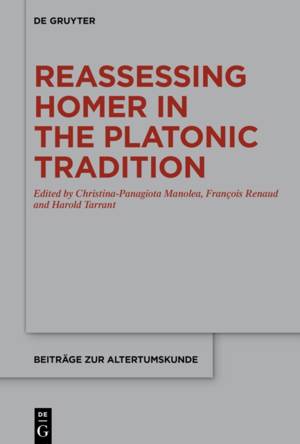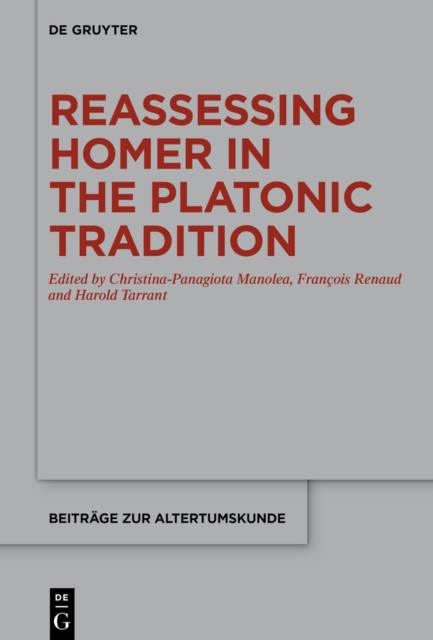
- Afhalen na 1 uur in een winkel met voorraad
- Gratis thuislevering in België vanaf € 30
- Ruim aanbod met 7 miljoen producten
- Afhalen na 1 uur in een winkel met voorraad
- Gratis thuislevering in België vanaf € 30
- Ruim aanbod met 7 miljoen producten
Reassessing Homer in the Platonic Tradition
Omschrijving
Plato's famous and infamous criticism of Homer was the climax of a series of attacks by early thinkers on the first and greatest Greek poet Homer. It triggers an even longer series of responses attempting either to justify further "the old quarrel between philosophy poetry" (Pl. Resp. 607b-c), or, in most cases, to reconcile the two great authors. The so-called Plato-Homer problem is in broad outline twofold, with numberless ramifications and sub-issues. Why does Plato's Republic repeatedly attack and even exile the greatest cultural authority of the Greeks? And why does he do so while quoting Homer abundantly - more than any other author - and even adapting many artistic features of Homeric poetry? This volume concentrates on the various responses to the controversy among Platonically minded writers, while including a few other reactions from just outside that circle. Strategies of reconciliation are many, including both allegorical and non-allegorical approaches, involving the notions of myth, mimesis, inspiration, wisdom, theology, etc. The volume presents original treatments of major figures, such as Porphyry and Proclus, as well lesser-known authors or texts (e.g. Platonic Spuria), and non-Platonists (Xenophon, Aristotle, scholiasts, etc.) who serve as enlightening comparative figures. While recent literature on these questions usually concentrates on single authors, this book details its reception in the Platonic tradition overall.
Specificaties
Betrokkenen
- Uitgeverij:
Inhoud
- Aantal bladzijden:
- 327
- Taal:
- Engels
- Reeks:
- Reeksnummer:
- nr. 426
Eigenschappen
- Productcode (EAN):
- 9783111673097
- Verschijningsdatum:
- 20/05/2025
- Uitvoering:
- Hardcover
- Formaat:
- Genaaid
- Afmetingen:
- 156 mm x 234 mm
- Gewicht:
- 635 g

Alleen bij Standaard Boekhandel
Beoordelingen
We publiceren alleen reviews die voldoen aan de voorwaarden voor reviews. Bekijk onze voorwaarden voor reviews.







